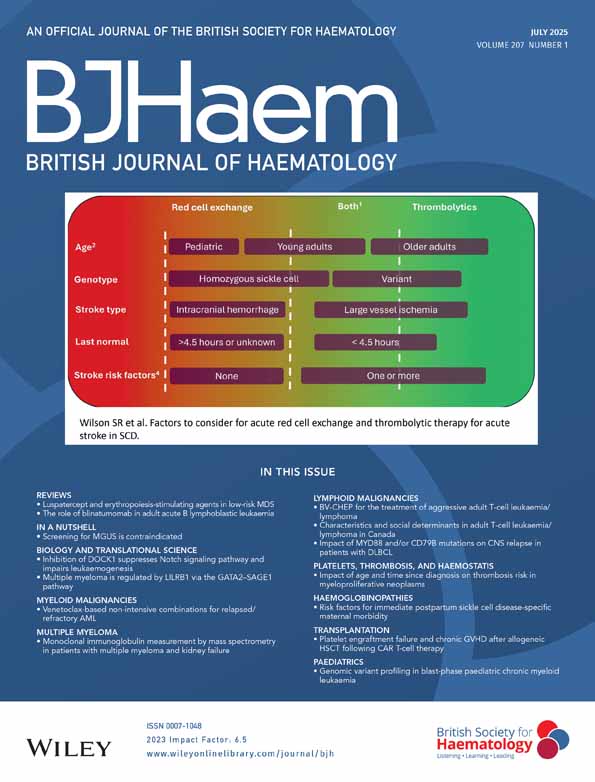Mutational analysis of the DNA mismatch repair gene hMLH1 in myeloid leukaemias
Abstract
Mutations of the DNA mismatch repair (MMR) gene hMLH1 have recently been linked to the development of some hereditary and sporadic cancers which frequently display widespread microsatellite instability (MSI). Conflicting results regarding the extent of MSI in myeloid leukaemias prompted us to perform mutational analysis of all 19 exons of the hMLH1 gene by polymerase chain reaction–single-stranded conformation polymorphism (PCR-SSCP) and sequence analysis in a total of 133 patients with acute and chronic myeloid leukaemia. Apart from one exonic and one intronic polymorphism, no mutations were detected in any of the samples indicating that the major MMR gene hMLH1 is not involved in the pathogenesis or progression of myeloid malignancies.




